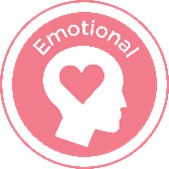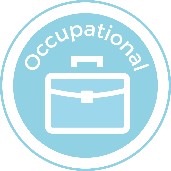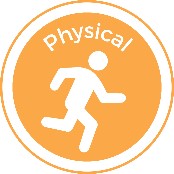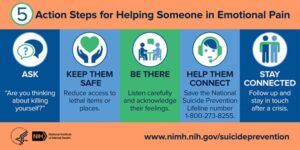
Coping with Pandemic Depression
Without a doubt, we have seen an increase in the prevalence of depression since the outbreak of the COVID-19 pandemic. Some studies suggest that the rate of depression in the United States has tripled. With no definite end to the pandemic in sight, it is understandable that many Americans are experiencing feelings of hopelessness. So, what is the connection between COVID-19 and depression? How has depression been brought on by the pandemic? And how can you cope with these feelings, even as COVID-19 continues to affect us?
How has COVID-19 impacted our Depression Levels?
We have been facing extended periods of isolation: We are social creatures with a desire for human interaction! Not being able to spend time with friends or family members can leave us feeling isolated and lonely. These feelings can trigger depression.
Anxiety and Uncertainty is a daily experience: With so much uncertainty surrounding COVID-19, worry is a natural response. However, when we allow our worries to spiral, they can turn into anxiety. Anxiety can lead to depression when we feel like we’ve lost control of our thoughts, leaving us helpless.
Change in routine creates stress: When we experience major life changes, such as job loss, death of a loved one, financial difficulty, cancellation of big events, or even a shift in environment, we become stressed. Experiencing several of these major stressors at once can feel overwhelming, leaving us more susceptible to depression.
Unhealthy habits form in survival struggles: The ways in which we respond to major stressors can worsen depression. Some unhealthy strategies include substance abuse, overeating, self-medicating, and lack of sleep or physical activity.
The experience of being COVID-19 Positive: Having COVID-19 sometimes leads to feelings of guilt, shame, failure, or disappointment. The stigma of contracting the virus is isolating, as it can lead to self-blame and negative-self talk. These feelings and reactions can turn into depression. For those who experience a longer recovery period, or prolonged symptoms, such as loss of taste or smell, ongoing feelings of sadness or hopelessness are more likely to occur.
How Can You Cope as the Pandemic Continues On?
Maintain a routine & establish healthy daily habits: It can be hard to stay on a schedule after spending so much time at home for so long. Try to find some purpose in each day and create structure for yourself. This will help stabilize your depression by keeping your internal clock running smoothly. Avoid sleeping too much or too little and skipping meals or exercise. Regular exercise can be as effective as antidepressant medications and foods with omega-3 fatty acids can boost your mood! Keep up with your personal care routine, just as you would have before the pandemic, by showering and getting dressed each day.
Make time for things that bring you joy: Keep engaging in activities that enhance your mood daily, such as spending time with pets or outside, reading, cooking, crafting, or listening to music. These are your personal coping skills!
Practice mindfulness and relaxation techniques: Mindfulness will help you acknowledge your ongoing, pandemic-related feelings without judgement and respond to them with positive self-talk. Other relaxation techniques that will help you break away from your negative thoughts and relieve tension or anxiety include meditation, progressive muscle relaxation, and breathing exercises.
Stay connected with others: Over the past year, we have had to adapt and find new ways to engage with one another. It is important to stay in contact with those close to you in a manner that feels comfortable and safe, even when those depressive symptoms make it seem easier to stay isolated.
Limit news consumption: While it is important to stay informed about progressions with the pandemic, overconsuming news may be contributing to your feelings of sadness, hopelessness, or exhaustion, which will worsen your depression. Especially avoid news updates around bedtime.
Practice gratitude: As the pandemic continues to bring about feelings of hopelessness, try to find at least one thing you are grateful for each day, such as a beautiful sunset or a text from a friend. Consider writing these things down in a gratitude journal. Practicing gratitude may seem small, but it can provide relief from depressive symptoms and negative thoughts.
Help others or volunteer: Taking our minds off ourselves and our depression by offering to help others is a great way to decrease stress levels and increase feelings of happiness! The weight of our own issues becomes less heavy and we feel good inside.
See a therapist: There is no shame in seeking help! We have a wonderful team of licensed therapists who understand the impact of COVID-19 on depression and are here to help you develop coping skills and use your inner strengths to manage it. We are still offering both virtual and in-person appointments to meet your level of comfort with the pandemic.
Learn More
The obstacles to changing your life to know
Overcoming the Obstacles to Change
We are excited to share this latest article written by Sarah Groff, LCMHC on the obstacles to change, and the elements of life that can help you truly initiate a new beginning for you. Sarah has been a team member of Miracles Counseling Centers for the past 3 years and is highly skilled in counseling addressing relational attachment needs of families and couples, and also works with late adolescents through adulthood on issues relating to trauma, depression and anxiety concerns, and empowering clients to live fully in an intentional life.
I think it goes without saying that most people seek out therapy in hopes of accomplishing some level of change in their lives. Whether it’s navigating a serious mental health issue, a life transition, or a relationship or career stressor, therapy is often the avenue for identifying effective steps for change. Why then, can it be so difficult to enact and maintain?
Understanding the ways in which change actually takes root and becomes sustainable over the long term is just as important as learning to love oneself and develop healthy coping mechanisms. One of the most common themes I see in dealing with clients is the desire for movement in a particular area combined with an overwhelming feeling that such movement (or transformation) will remain forever elusive. While I would normalize these conflicting emotions, I would also argue that change does not have to feel like a never-ending game of cat-and-mouse. This article will briefly identify some common reasons why we tend to resist change, as well as steps to take in achieving it.
To begin with, a resistance to change is often a reflection of one’s lack of confidence, life experience, modeling, or fear of failure based upon past attempts. When I begin to probe into a client’s past efforts at change, it is not uncommon to discover that he or she either lacks practice or has been “shot down” so many times throughout their life that they no longer believe they are capable of change. All too often, society assumes that people who so “obviously” need to change and don’t, are just lazy. I realize that may be true in some cases, but more often than not, I believe clients lack skill, confidence, experience, and an advocate. Not only can a therapist help to identify the root of a client’s resistance, but they can also be a positive voice to encourage a client that he or she truly is capable of effecting the change(s) they so need and desire.
Another important factor to keep in mind is that we often mistake change for a television makeover. In other words, we expect it to be quick, tidy, glamorous, and relatively painless. If that is your expectation, then I venture to say you may be disappointed. By its very nature, change is undoing something that was and transforming it into something new, therefore some level of discomfort is to be expected. I believe this is a second reason why change sometimes doesn’t take root, despite the best of intentions. If clients can get past the resistance stage, they may become discouraged when the work becomes hard. For example, clients may feel at a loss when experiencing emotions for the first time or when their faulty patterns of thinking and behaving are being challenged. Without even knowing it, a client may sabotage their own therapeutic process because they misunderstand discomfort for failure. When I see this occurring, I remind my clients that if they will believe in the process and develop some tolerance for the discomfort that positive change creates, then their emotional/mental “muscle” will be strengthened and will continue to grow with each step or improvement made.
The pace and timing of change are equally important to acknowledge in this discussion. When it comes to changing one’s thoughts and behaviors, not only is it work that takes time, but it also requires attention to pace. In other words, it can’t be too fast or too slow. If change moves too quickly, the roots are shallow and if it moves too slowly, clients often lose motivation. You can liken this process to baking cookies. If you don’t include enough baking soda, for instance, then the cookies fall flat. By contrast, if you add too much then the whole batch tastes sour. Skip a step, eliminate an ingredient, or alter the time and temperature, and the result will probably be disappointing. When it comes to one’s mental and emotional health, the same principle applies. Remember, the goal is genuine change that lasts, so paying attention to pace and timing are critical.
One of the most helpful tools in creating much wanted/needed change is to identify small steps to support that goal and then tackle one step at a time. Clients often admit to feeling overwhelmed about all of the changes they believe are necessary, but when you break it down to one area of focus at a time it is much more manageable (and sustainable). For some individuals, the first step towards a healthier, more balanced life may be to engage in some form of self-care or to go on a social media “diet.” For others, it may be setting their alarm to get up 20 minutes earlier every day so that they can practice some sort of mindfulness like journaling, praying, meditating, vocalizing affirmations, or making a plan for the day. Once that step is put into place and has become a part of the client’s routine, then it is time to add a second step. This strategy is often referred to as “habit stacking” and is proven to be highly effective for change.
As another year gets under way, you may have already been contemplating changes you would like to make in your life. Perhaps your finances need overhauling or you need to learn new parenting strategies. Maybe you lost your job because of COVID or you are struggling with an unfulfilling marriage. You might be the client who has fought depression off and on for years or who questions their value and identity. Whatever your struggle and regardless of how many times you’ve tried to turn things around, remember that it is never too late to change and it is absolutely okay to ask for help. Talking to a therapist may be just the thing you need at this time to provide prospective and reassurance that the changes you desire really are within reach.
If you would like to additional counseling support with Sarah on your life, please reach out to us on our contact us page to schedule a time to create change in your life.
Learn More
January is Mental Wellness Month!
January is Mental Wellness Month! Mental wellness is about how all aspects of our lives come together and influence our overall state of well-being. It is not just the absence of a mental illness. Mental wellness is something that we can all consistently strive for. At Miracles, we think mental wellness is important and are committed to helping you improve your well-being for a happier and healthier lifestyle.
Mental wellness affects all aspects of our lives and can determine how we act, feel, and think. Our mental wellness can also impact how we respond to stress, connect with others, and make decisions.
Because our mental wellness is determined by the ways in which different aspects of our lives come together, it is broken up into 8 dimensions. To gain a better understanding of your current state of well-being and how you can work to improve it, we will provide a breakdown of each dimension. You may realize that, while you have achieved wellness in some dimensions, other dimensions may be negatively affecting your overall wellness. These can be focus areas for personal improvement.
Emotional Wellness Our awareness, understanding, and acceptance of our emotions, as well as our ability to m anage challenges and change. Being emotionally well allows us to identify and accept how we are feeling, then decide how we want to respond. We can express our feelings without any constraints, which leads to a happier life.
anage challenges and change. Being emotionally well allows us to identify and accept how we are feeling, then decide how we want to respond. We can express our feelings without any constraints, which leads to a happier life.
How to achieve it: Accept that emotions occur and allow them to be felt; Embrace a positive outlook; Practice mindfulness; Be grateful; Seek help from others when needed; Develop coping skills or ways to manage stress
Occupational Wellness Our ability to achieve a balance between work and leisure in a way that promotes  enrichment and personal satisfaction. The way we feel about our work affects our overall well-being. When we do not feel a sense of enjoyment or fulfillment from our careers, we can become depressed. When we are content with our careers, we experience greater proficiency, productivity, commitment, energy, & enthusiasm.
enrichment and personal satisfaction. The way we feel about our work affects our overall well-being. When we do not feel a sense of enjoyment or fulfillment from our careers, we can become depressed. When we are content with our careers, we experience greater proficiency, productivity, commitment, energy, & enthusiasm.
How to achieve it: Set realistic goals and work toward them; Reflect on yourself and your needs; Seek motivating and interesting work; Practice open communication and conflict management with colleagues; Find ways to enjoy daily tasks; Focus on the positives in your job
Social Wellness How we interact with others. It is about how connected we feel to our community and our ability  to maintain healthy relationships. It is important for us to have a supportive social network to rely on. The quality of our relationships affects our identity, self-esteem, & other dimensions of wellness. Strong social wellness also builds emotional resilience.
to maintain healthy relationships. It is important for us to have a supportive social network to rely on. The quality of our relationships affects our identity, self-esteem, & other dimensions of wellness. Strong social wellness also builds emotional resilience.
How to achieve it: Reflect on yourself and your social needs; Make connections; Stay in touch with supportive family and friends; Practice self-disclosure; Join a club or organization; Balance personal and social time; Create healthy boundaries.
Financial Wellness Our ability to understand and successfully mange financial expenses. Financial wellness involves being informed about financial concerns and prepared for financial changes.  Finance is a common source of stress, anxiety, and fear. Financial wellness allows us to enjoy our lives, while living within our means. Investing in our financial wellness now can help us be prepared for future financial constraints and life’s challenges.
Finance is a common source of stress, anxiety, and fear. Financial wellness allows us to enjoy our lives, while living within our means. Investing in our financial wellness now can help us be prepared for future financial constraints and life’s challenges.
How to achieve it: Find your why- what motivates you financially?; Keep organized records of your finances; Plan ahead and set budget goals; Limit impulsive spending; Avoid multiple lines of credit; Don’t put it off- identify problems before they start!
Intellectual Wellness Engaging in a variety of mentally stimulating activities to  help us organize our experiences, problem solve, think creatively and expand our knowledge. Intellectual wellness encourages learning, exploration, and curiosity. When we are curious, we are motivated to try new things, improve skill sets, challenge ourselves, and become more open-minded.
help us organize our experiences, problem solve, think creatively and expand our knowledge. Intellectual wellness encourages learning, exploration, and curiosity. When we are curious, we are motivated to try new things, improve skill sets, challenge ourselves, and become more open-minded.
How to achieve it: Academic, cultural, and community involvement; Pick up a hobby; Travel; Explore new avenues of creativity and artistic expression; Practice critical thinking; Find practical applications for learning
Environmental Wellness Being aware of, caring about, and interacting with nature and your personal  environment. When we are more environmentally aware, we understand how our daily habits affect the environment. Environmental wellness encourages us to respect our environment and practice healthy habits that promote a healthy environment. Feeling more in control of our environment can also reduce anxiety.
environment. When we are more environmentally aware, we understand how our daily habits affect the environment. Environmental wellness encourages us to respect our environment and practice healthy habits that promote a healthy environment. Feeling more in control of our environment can also reduce anxiety.
How to achieve it: Conserve energy; Recycle; Spend time outdoors; Clean up after yourself or pick up litter; Practice sustainability
Physical Wellness Taking care of our bodies for optimal health and functioning. Physical wellness involves taking  responsibility for our own health, being more aware of our physical well-being, and establishing a routine of making healthy choices. When we are physically well, we can balance physical activity, nutrition, and our mental well-being, leading to greater energy & functioning, and a reduced risk for depression.
responsibility for our own health, being more aware of our physical well-being, and establishing a routine of making healthy choices. When we are physically well, we can balance physical activity, nutrition, and our mental well-being, leading to greater energy & functioning, and a reduced risk for depression.
How to achieve it: Maintain a healthy & well-balanced diet; Visit a primary care physician for regular checkups; Maintain a regular sleep schedule; Avoid/reduce activities or substances that negatively impact your body; Exercise regularly; Learn your body’s warning signs when it starts to feel ill
Spiritual Wellness Exploring our personal values and beliefs and incorporating them into our daily lives.  Spiritual wellness allows us to live with meaning and purpose, appreciate life experiences, and balance our inner self with the outside world. Being in tune with our spiritual selves can include believing in a religious faith, but it can also just mean learning about ourselves and how we see ourselves in the world.
Spiritual wellness allows us to live with meaning and purpose, appreciate life experiences, and balance our inner self with the outside world. Being in tune with our spiritual selves can include believing in a religious faith, but it can also just mean learning about ourselves and how we see ourselves in the world.
How to achieve it: Explore your inner self- thoughts about who you are; Create a personal mission statement; Practice mindfulness, meditation, and/or prayer; Practice acceptance and compassion; Perform random acts of kindness, serve, or volunteer; Be curious; Look for a religious faith that you agree with
If you would like to work on a specific area in your life in order to improve your overall mental wellness, our therapists are here to help! We can help you identify the dimensions that you may be struggling with and work together to create a plan for how you can improve in these specific dimensions. We also understand that trying to balance wellness in all of these dimensions can be overwhelming and we are here to help you manage any anxiety that you may feel.
You can also follow along with us on Facebook for helpful videos and infographics related to mental wellness.
Learn More
Suicide Prevention Month, How you can help
Suicide has impacted us all and often the question is repeatedly asked: How can we prevent it? 
September is #suicidepreventionmonth. You may have come across this hashtag on social media. But what does it mean for you?
Did you know that suicide is a serious public health concern? Suicide is the 10th leading cause of death in the United States. In 2018, nearly 48,000 people died by suicide and another 10.7 million adults experienced suicidal thoughts.
Suicide is tragic and can be very hard to talk about, but it is often preventable if we know what to look for and how to engage in conversations about it. Suicide prevention month exists to shed some light on the topic by raising awareness, sharing resources with those who might need them, and normalizing conversations about suicide without stigma. I want to provide you with some tips on how to recognize and respond to signs of suicidal thoughts among your loved ones.
Risk Factors
There are several risk factors that can help us identify those in our lives that are more at-risk for suicide. This does not mean that people with one of these risk factors will attempt suicide. It is just something we should be aware of. Risk factors include:
-Previous suicide attempt
-Family history of suicide
-Significant life events that may be triggering, such as relationship problems, unemployment, history of child abuse, bullying, sexual abuse, or diagnosis of a chronic health condition
-Existing mental health struggles, particularly mood disorders, anxiety disorders, schizophrenia, and personality disorders
-Substance use or abuse
-Access to firearms
-Experience of discrimination, prejudice, isolation, and/or family rejection on the basis of sexuality among LGBTQ youth
Warning Signs
It is also important to know the warning signs of suicide. You might not think that someone is having thoughts of suicide because they aren’t openly talking about wanting to die or sharing feelings of hopelessness. However, it often is not this clear. Other warning signs of suicide include:
-Increased alcohol or drug use
-Aggressive, impulsive, or reckless behavior
-Withdrawal from family and friends
-Extreme mood swings
-Change in eating or sleeping habits
-Talking about being a burden to others or having great guilt/shame
-Giving away important possessions or putting affairs in order
What do I do?
So now that you know what to look for, what do you do if you identify someone in your life who is in emotional pain or having thoughts of suicide? Are you worried you may be caught off guard or afraid that you might not say the right things? This is normal, as you are probably not a mental health professional, but anyone can take these 5 simple steps of action to help.
- Ask: It might not be easy to ask someone if they are thinking about killing themselves, but, if done in a caring way, this often gives the person a sense of relief and does not cause any harm. Be sensitive, but direct. Here are some example questions: “How are you coping with what’s been happening in life?” “Are you thinking about hurting yourself?” “Are you thinking about suicide?” “Have you ever tried to harm yourself?”
- Keep them safe: Ask if this person has already thought of a plan. Consider questions like: Have you thought about how or when you’d do it? Do you have access to weapons or things that can be used as weapons to harm yourself? Help them out by removing lethal items or reducing access to potentially lethal places.
- Be there: Listen without judgement to what the person has to say. Allowing them a safe space to talk about what they are thinking and feeling may reduce depressed, anxious, and/or suicidal thoughts.
- Help them Connect: By creating a network of resources for support, you are helping this person take action. Save the national suicide prevention lifeline in their phone and offer to help them connect with a mental health professional and/or another friend or family member as soon as possible.
- Follow Up: Be sure to stay connected with the individual during and even after treatment. Let them know that you’re still there for them.
My hope is that this information will not only make you more aware of suicide and those in your life who may be dealing with suicidal thoughts, but that it will also make you more comfortable talking about suicide or reaching out to those you might be concerned about. I encourage you to do your part this month, and even after, to raise awareness about suicide and be there for those you love. Therapists at Miracles all want to help someone find their way through depression and live a good life again.
Ready for additional information? Here are some resources that might be helpful in learning more about suicide prevention and how you can get involved.
https://theactionalliance.org/
https://www.nami.org/get-involved/awareness-events/suicide-prevention-awareness-month
Learn More
Counseling while Social Distancing….
Greetings! These past few weeks have been extremely challenging for all of us and I know it is hard to think about how long this pandemic will impact our community. Miracles Counseling Centers wants to encourage each of you that we will continue to be support the emotional health needs that you will experience as we all continue to adjust to changes in our lives, supports, and resources.
Maintaining mental wellness can be a struggle right now. We may be rapidly trying to adjust our lifestyles, but in doing so we may ignore the emotional toll it is taking on us and our relationships. We are here for you and your families and are now offering Teletherapy sessions to meet you right where you are.
What is Teletherapy?
Teletherapy is a digital platform where you can securely and privately meet with your therapist while on a computer or smart phone. Teletherapy is much like talking with someone on Facetime or Zoom and can feel just as comfortable as meeting someone face to face. Our staff choose HIPAA compliant and secure platforms to meet with you so that your confidentiality remains protected.
Is it as effective as meeting with a therapist in the office?
Yes! Research has compared teletherapy with face to face therapy and has shown that teletherapy is just as effective.
What are the benefits of Teletherapy?
The #1 most obvious benefit of teletherapy is that it can be done anywhere your computer or smartphone is. It saves in gas money, travel time, and can give you access to specialists when you may not otherwise be able to leave your home…such as right now! Utilizing teletherapy can also help prevent other obstacles from interfering with your work on your goals – such as broken down vehicles or out of town business trips.
Does insurance cover Teletherapy?
YES! Due to statewide shutdowns and recommendations from the CDC for social distancing, most insurances are covering teletherapy services, and some are even waiving copays.
Is this even a good time to start therapy?
Therapy can be started easily through secure digital platforms and can give you the support and care you may need during this pandemic. Waiting until the pandemic is over may only further delay your future goals and further complicate the work you may need to do due to the strain you could be going through now.
Reach out to us to connect with therapist that will keep you moving in the right direction!
Learn More

